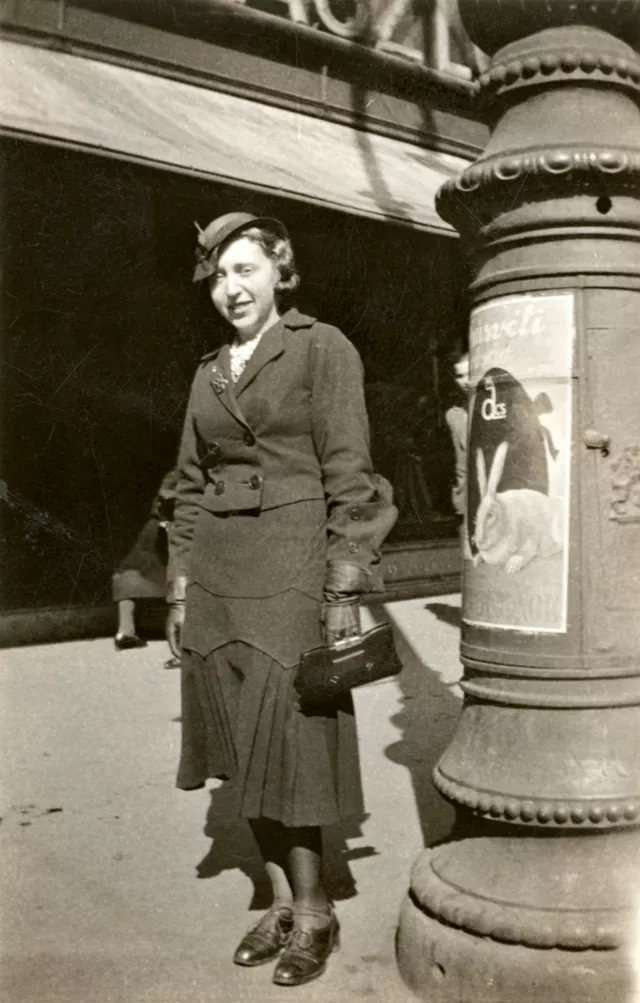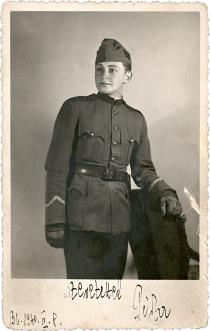Hedvig Endrei
I am in this picture. It was taken in Budapest in 1934. I wrote on it: 'For my brother with love, Szutyi.' Szutyi was my nickname.
In the 1920s and 1930s it was in fashion to go to the Budapest promenade on Saturdays and Sundays. There were hotels all along the bank of the Danube, each of them had a terrace on the street side, and gypsy bands often played there. One could meet acquaintances, friends there. One could also make acquaintance with people there. My mother and I often went for a walk on the promenade after synagogue on Saturdays, and we carried the prayer books in our hands. My mother always wrapped the prayer book in a white cloth and carried it like that. We always made sure to be home by about 12 to 1 o'clock. At that time the promenade was empty, and in the afternoon it became populated again. We often went out on Sundays too, or at least I went with friends or my brother to listen to the leader of the gypsy band, to pass the time. There was an iron balustrade at the promenade, where the tram no. 2 goes now. We sat there and listened to Imre Magyari, the leader of the gypsy band. He was also our customer at the comforter shop.
I also remember that we, young girls used to go to the Muzeum Garden to meet boys. We always had to dress very elegantly. It was in fashion at that time that the tights, the gloves, the hat and the shoes had to be of the same color. My friend's beau was a famous film director. He was a very handsome boy, with blond curly hair and he always wore navy corduroys and shirt. He wasn't Jewish. She was my best friend on Vamhaz Boulevard, she was my friend for 23 years.
I often went out with my brother and his friends. In the 1930s my brother had a boat-house on the Romai bank. At that time boat houses on the Danube that one could buy were in fashion. We usually spent the summer there. This was a way of having fun at that time. It was very nice. We went for a row, the boys went fishing, and we had fun. One could sleep there, but we usually went there in the morning and came back in the evening. There was an apartment in the boat-house, with four rooms overlooking the shore, and four rooms overlooking the water. Every room had a separate tenant. Next to the building there was the boat garage, and the boats were there. Everyone had a boat, we had a kayak. There was also a balcony and shower in the boat-house. There wasn't a kitchen, but we cooked on a heater. We often fried fish. We coated the small fish the boys caught with flour and paprika and fried it. I didn't like it, but the boys did. At that time the Duna bathing establishment also existed. There were two Duna bathing establishments between Ferenc Jozsef Bridge and Erzsebet Bridge, one for men and one for women. My brother learned to swim there. We also went on hikes in the mountains around Budapest. We always went on Sundays. At these occasions we also picnicked.






























